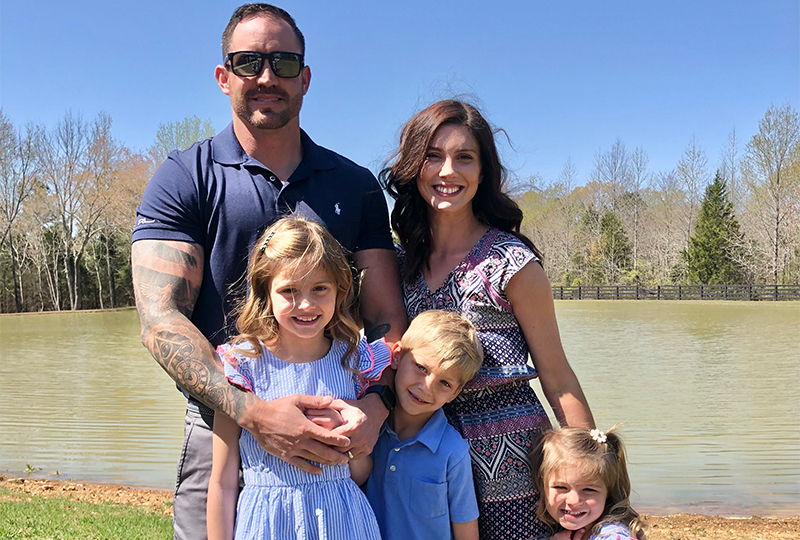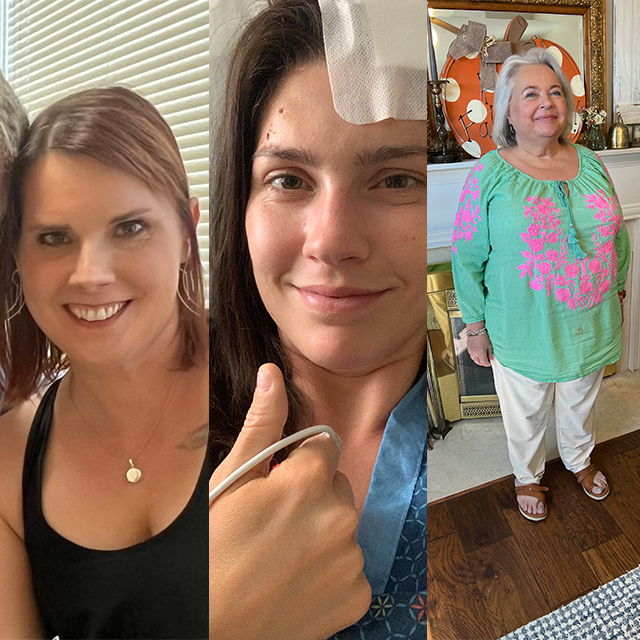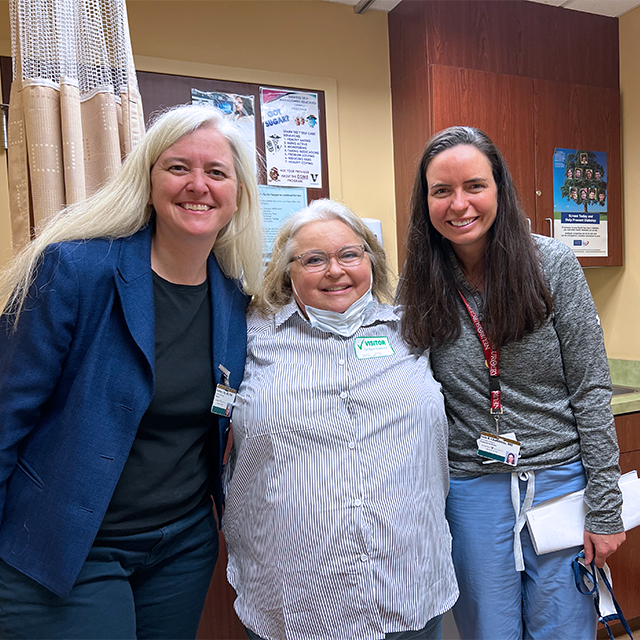Christen Dowdy says she can’t believe how quickly she recovered after surgery to remove a tumor on her brain.
While packing for a move in November 2023, Christen Dowdy came across a journal she hadn’t thought about in more than two years. In it, she had written letters to her children before she underwent brain surgery “in case something bad happened.”
Rereading the letters made the mother of three emotional, reminding her of the overwhelming experience she had been through.
“I never really realized how scared I had been until I opened up that journal,” she said. “In the letters, I told my kids why I love them, what they do for me and why they’re special.”
Little did she know then, Dowdy’s kids wouldn’t need her letters. Everything would go perfectly, and her brain surgery recovery would be smooth. In fact, a week later, she would be back to cheering on her son at his baseball game.
Still, learning she had a meningioma brain tumor was difficult to deal with at the time.
A shocking diagnosis
Meningiomas are a type of tumor that grow on the membrane that surrounds the brain. While usually benign, meningiomas can be problematic, depending on their size and location. They can cause headaches, vision loss, hearing loss and seizures.
Dowdy’s meningioma was found during a workup to diagnose what turned out to be hormonal headaches. At first, Dowdy’s neurologist recommended taking an approach called active surveillance, which involves monitoring the tumor to see if it grows. Over a period of about 18 months, Dowdy’s neurologist determined her meningioma was in fact growing and discussed her options, which included surgery to remove the tumor and radiation therapy to stop its growth. He recommended she consult with a neurosurgeon.
Dowdy agreed but was steadfast that she would not be having brain surgery.
“I didn’t even consider it at first,” she said. “I thought, ‘That’s crazy. Why would I have surgery if [the tumor] isn’t causing any issues?’”
Meeting Dr. Morone
The easiest part of her experience with meningioma, Dowdy said, was deciding where to go to find a neurologist.
“There was never really a question about it. I love Vanderbilt University Medical Center. I had all three of our kids there, so that’s where we went,” she said. It didn’t hurt that Vanderbilt’s brain tumor program is a center of excellence, meaning its staff has the ability to treat the most complex brain tumors.
Once she met Dr. Peter Morone, a neurosurgeon with Vanderbilt Neurosurgery, Dowdy said she knew she was in the right hands. Not only did he seem highly capable, but he took the time to make her feel comfortable and answer all her questions. They bonded over family and a love for running.
“I love to trail run and Dr. Morone is an ultrarunner,” Dowdy said. “He also has three kids just like my husband and I do. Even though it was 2021 and we were all masked up, I could just see something in his eyes, and the way he spoke — he just made me feel so confident and safe.”
Morone recommended Dowdy have surgery to remove the meningioma. This time, she agreed.
Putting it behind her
“As long as you go to a center that is focused specifically on cranial surgery, then most patients make a great recovery and can get back to their lives fairly quickly.”
Morone performed Dowdy’s surgery in March 2021. She was released from the hospital just two days later.
“I still can’t really believe it,” Dowdy said. “I can’t believe how quickly I recovered from brain surgery.”
Morone says brain surgery doesn’t have to be as scary as people think.
“While these procedures are complex for the surgeon, oftentimes, brain surgery is actually pretty simple for the patient in terms of recovery,” he said. “As long as you go to a center that is focused specifically on cranial surgery, then most patients make a great recovery and can get back to their lives fairly quickly. We are lucky to have a team here at Vanderbilt that only does brain tumors. That’s what we are doing every single day in the operating room.”
She says she can’t thank Morone enough for proactively treating her meningioma before it caused her problems.
“I’ve never been happier to say that I feel exactly the same as I did before surgery,” she said.

Personalized Care for Brain Tumors
Vanderbilt’s Brain Tumor program is a national leader in research and clinical trials, providing access to innovative treatment options and technologies not available elsewhere. Vanderbilt’s team of experts works together to provide personalized care tailored to each patient’s unique needs, and patient care coordinators are there to help every step of the way.




